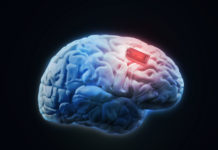Geer Judith K Phd Pc in Tempe AZ is a highly experienced physician with a specialization in psychiatry and neuropsychology. Dr. Geer Judith K Geer is an assistant professor at the National College of Rehabilitation Medicine at the University of Pennsylvania. He has a bachelor’s degree in Social Sciences from New York University and a master’s degree in Rehabilitation Medicine from the University of Michigan School of Medicine. In addition to his academic and clinical work, Dr. Geer Judith K has been a consultant for many rehabilitation centers. Dr. Geer Judith K has also been a board certified alcohol and drug addiction specialist. His areas of interest are substance abuse treatment programs and mental health services for substance abusers.
Dr. Geer Judith K is a licensed medical physician and a specialist in alcohol and drug rehabilitation. He is the president and founder of the National Alcoholism & Drug Addiction Association (NADA). Dr. Geer Judith K’s research and development of comprehensive recovery programs in residential and outpatient settings have made him a leader in the field of addiction medicine and rehabilitation. His goal is to increase the effectiveness of substance abuse treatment programs by identifying and addressing the underlying causes of the addiction as well as reducing or eliminating harmful consequences of substance abuse. He believes that substance abuse can be curbed and reversed. He has been instrumental in developing substance abuse treatment programs for patients with severe alcohol dependency who are suffering from psychiatric illness and other psychological disorders. These programs help patients overcome emotional, physical, and psychological problems that lead to substance abuse.
Dr. Geer Judith K’s specialty in psychiatry and substance abuse treatment focuses on the patient’s motivation, behavior, and brain functioning to cause the addiction. He incorporates these techniques into his treatment program. He emphasizes the importance of developing a comprehensive treatment plan, which includes several components such as detoxification, group therapy, and individual counseling. The program also includes educational support for the patients including family therapy and education on relapse prevention and relapse. These programs enable the patients to return to their normal lives. This is achieved by providing a comprehensive and coordinated approach that addresses the emotional, biological, and neurological issues.











